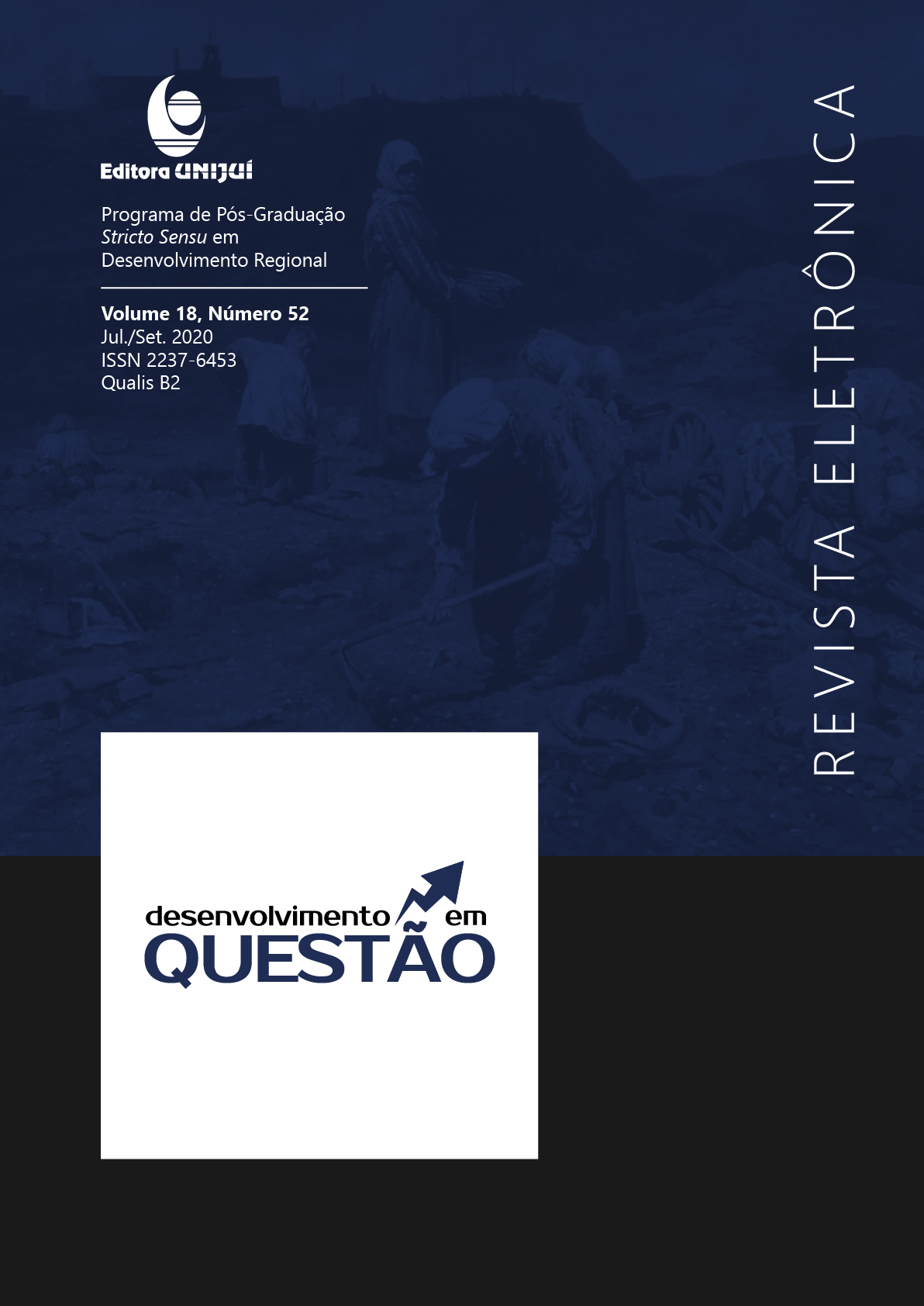Marketing, Tecnologia e Planejamento Como Diferenciais Competitivos Para Alavancar o Dark Tourism e o Desenvolvimento Local e Regional
DOI:
https://doi.org/10.21527/2237-6453.2020.52.324-334Palavras-chave:
Turismo, Plano de Marketing, Dark TourismResumo
Competitividade, novas tecnologias de gestão e de informação e a alta sazonalidade e evolução de mercado, em especial no setor turístico, influiu nas estratégias de marketing tornando-as em instrumento importante para o planejamento do desenvolvimento local e regional. Esse artigo, resultante de estudos e pesquisas desenvolvidas pelo Grupo de Pesquisas ESADI - Estudos Setoriais em Administração, Desenvolvimento e Inovação, tem por objetivo evidenciar como um plano de Marketing pode alavancar o desenvolvimento do setor turístico, especialmente em lugares que se enquadram no conceito de Dark Tourism. Nesse sentido, trata-se de conhecer o comportamento do consumidor e obter informações necessárias para a elaboração de um plano de Marketing de forma a impulsionar o turismo local e regional. Quanto aos aspectos metodológicos trata-se de um referencial teórico cujos resultados identificam as vantagens de operar a gestão do turismo a partir de um planejamento que contempla a atração e prospecção de clientes a partir de cinco ações estratégias: i) criação de uma marca; ii) consolidação da imagem simbólica de Sepé Tiarajú; iii) implementação do aplicativo (APP) missões; iv) Criação do roteiro missões; e v) intensificação da estrutura do espetáculo som e luz. A pesquisa aponta as indicações que constam num plano de ação, cujo propósito disponibiliza um conjunto de possíveis benefícios para o desenvolvimento turístico do Sítio Arqueológico de São Miguel Arcanjo na cidade de São Miguel das Missões/RS/Brasil inserido no contexto dos Sete Povos das Missões.
Downloads
Publicado
Como Citar
Edição
Seção
Licença
Ao publicar na Revista Desenvolvimento em Questão, os autores concordam com os seguintes termos:
Os trabalhos seguem a licença Creative Commons Atribuição 4.0 Internacional (CC BY 4.0), que permite:
Compartilhar — copiar e redistribuir o material em qualquer meio ou formato;
Adaptar — remixar, transformar e criar a partir do material para qualquer fim, inclusive comercial.
Essas permissões são irrevogáveis, desde que respeitados os seguintes termos:
Atribuição — Atribuição — os autores devem ser devidamente creditados, com link para a licença e indicação de eventuais alterações realizadas.
Sem restrições adicionais — não podem ser aplicadas condições legais ou tecnológicas que restrinjam o uso permitido pela licença.
Avisos:
A licença não se aplica a elementos em domínio público ou cobertos por exceções legais.
A licença não garante todos os direitos necessários para usos específicos (ex.: direitos de imagem, privacidade ou morais).
A revista não se responsabiliza pelas opiniões expressas nos artigos, que são de exclusiva responsabilidade dos autores. O Editor, com o apoio do Comitê Editorial, reserva-se o direito de sugerir ou solicitar modificações quando necessário.
Somente serão aceitos artigos científicos originais, com resultados de pesquisas de interesse que não tenham sido publicados nem submetidos simultaneamente a outro periódico com o mesmo objetivo.
A menção a marcas comerciais ou produtos específicos destina-se apenas à identificação, sem qualquer vínculo promocional por parte dos autores ou da revista.
Contrato de Licença (para artigos publicados a partir de 2025): Os autores mantêm os direitos autorais sobre seu artigo, e concedem a Revista Desenvolvimento em Questão o direito de primeira publicação.











